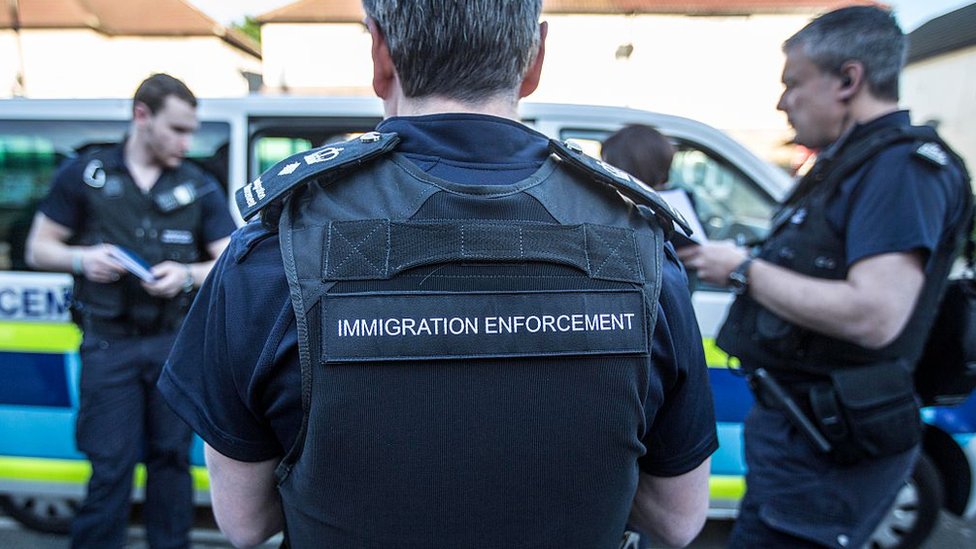Table of Content
EU citizens living in the UK by 31 December 2020 are eligible to apply to the EU Settlement Scheme and will have until 30 June 2021 to make an application. As a transition measure, employers, landlords and public service providers will continue to accept the passports and national identity cards of EU citizens as evidence of permission during this period, up until 30 June 2021. In addition, we will continue our generous visitor provisions, but with simplified rules and guidance. We expect to treat EU citizens as non-visa nationals meaning they can come to the UK as visitors for six months without the need to obtain a visa. There will be no change to the arrangements for the Common Travel Area. We have committed to expanding the pilot scheme for seasonal workers in agriculture which will be quadrupled in size to 10,000 places.
All I’d say there is that implementation has to be high on the list when designing policy, whereas I’d be surprised if you ever reach review stage – this doesn’t seem to happen very often. The people issuing visas, Border Force and other operational and policy people with an interest. I hope any conversation on short-term visas also covered the risks of exploitation, although that risk may be lower for drivers. Some of the report examined the legacy of the Windrush scandal, and concluded that the internal culture that created the hostile environment still remains.
Employers take note: all change for right to work checks from 1 October 2022
They will continue to be able to enter the UK under the innovator route and will in due course be able to benefit from the proposed unsponsored route. The UK already attracts world class artists, entertainers and musicians and we will continue to do so in the future. The UK’s existing rules permit artists, entertainers and musicians to perform at events and take part in competitions and auditions for up to six months. They can receive payment for appearances at certain festivals or for up to a month for a specific engagement, without the need for formal sponsorship or a work visa.

“We will consider our position in respect of the court of appeal,” she said. The challenge was backed by the UNHCR, which said Rwanda’s system for assessing refugees lacked the “minimum components of an accessible, reliable, fair and efficient asylum system”. In another memo, Foreign Office officials said they had advised Downing Street against engagement with several countries, including Rwanda. But in a rebuke for the Home Office, two judges said the government failed to consider the circumstances of eight individuals it tried to deport under the scheme in June.
Crossing the border
Additionally, in line with the MAC’s recommendations, we will not introduce regional salary thresholds or different arrangements for different parts of the UK. The Home Office has been strongly criticised for its deportation, under the hostile environment policy, of people to countries where they are known to be at particular risk of being tortured or killed, such as Afghanistan and Zimbabwe. This practice is prohibited by Article 3 of the European Convention on Human Rights, which forms part of UK law as part of the Human Rights Act 1998. In 2017, the Home Office under Amber Rudd deported a refugee back to Afghanistan in spite of a High Court order not to, was found in contempt of court and on review was ordered to return him. Kenneth Baker was found in contempt of court when his Home Office did the same thing in 1991.

The information and commentary does not, and is not intended to, amount to legal advice to any person. Those stakeholder conversations are there to give policy-makers an idea of what people want to happen, don’t want to happen and the issues they can see. You end up with a lot of issues and have to weave through them to find a solution. It is also the reason why whatever you come up with will be criticised – there are always too many competing interests and concerns.
Deportation
We intend to create a high wage, high-skill, high productivity economy. Regarding the UK’s exit from the EU, the report warned officials were “unprepared for the challenges”. It added that the department had been unable to provide evidence, when asked in July, that it had begun discussions with EU counterparts on international operations, including regarding “the return of foreign national offenders and illegal migrants”. OIS also establishes standards of reliability and validity for the Department’s immigration statistics; and it develops other immigration-related reports and conducts research at the direction of the Secretary. BSI develops and coordinates policy for security of transportation systems and the global supply chain and advises on policy matters and leadership decisions regarding the impact of trade and immigration/migration flows on border and cargo security.

From 1978 to 2004, the Home Office was then located at 50 Queen Anne's Gate, a Brutalist office block in Westminster designed by Sir Basil Spence, close to St James's Park tube station. Many functions, however, were devolved to offices in other parts of London, and the country, notably the headquarters of the Immigration and Nationality Directorate in Croydon. Aderonke Apata, a Nigerian LGBT activist, made two asylum claims that were both rejected by the Home Office in 2014 and on 1 April 2015 respectively, due to her previously having been in a relationship with a man and having children with that man. In 2014, Apata said that she would send an explicit video of herself to the Home Office to prove her sexuality.
Home Office hostile environment policy
This means most migrants will use a passport when arriving at the border. The citizens of Australia, Canada, Japan, New Zealand, the United States of America, Singapore and South Korea, who possess biometric passports, will continue to be able to use e-gates to pass through the border on arrival. We will also unilaterally allow EU citizens to continue to use e-gates, but we will keep this policy under review.

Students will be covered by the points-based system. They will achieve the required points if they can demonstrate that they have an offer from an approved educational institution, speak English and are able to support themselves during their studies in the UK. The information and commentary on this website is provided free of charge for information purposes only.
These changes will ensure that a wide pool of skilled workers will be able to come to the UK from anywhere in the world and the process will be made simpler and quicker for employers. These are important changes signalling that the UK is open for business. We accept the MAC’s recommendation on salary thresholds, including to lower the general salary threshold from £30,000 to £25,600. Migrants will still need to be paid the higher of the specific salary threshold for their occupation, known as the ‘going rate’, and the general salary threshold.

This will allow a smaller number of the most highly-skilled workers to come to the UK without a job offer. We will explore proposals for this additional route to the points-based system with stakeholders in the coming year. Our starting point is that this route would be capped and would be carefully monitored during the implementation phase. Example characteristics for which points could be awarded include academic qualifications, age and relevant work experience. This route will take longer to implement; we want to learn from previous experience of similar schemes in the UK that have highlighted certain challenges.

No comments:
Post a Comment